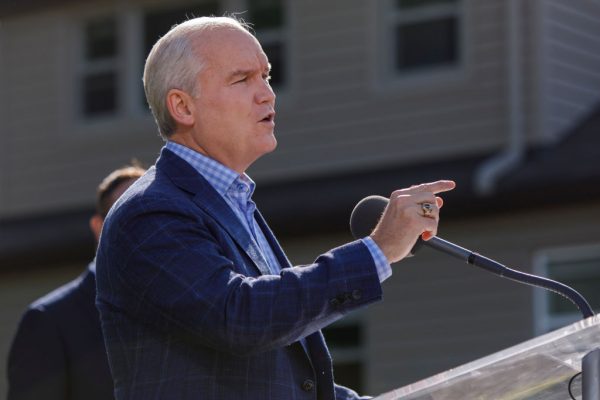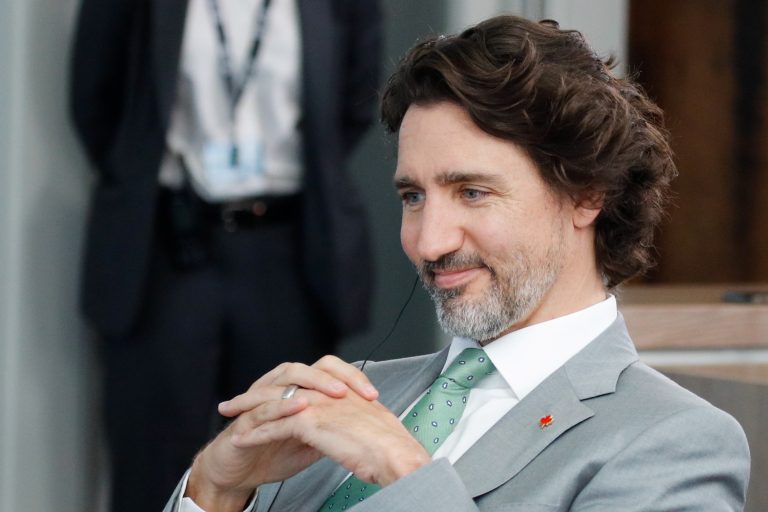Canadians are heading to the polls on Sept. 20 after Prime Minister Justin Trudeau called an early election in what is widely believed to be an attempt to secure a majority government. Had Trudeau not called an election he would have served as Prime Minister of Canada for another two years.
Canada is home to numerous federal political parties; however, the top two parties, Trudeau’s Liberal Party of Canada and Erin O’Toole’s Conservative Party of Canada, enjoy the majority of seats in parliament and that is not expected to change following the election on Monday with polls indicating an election result that looks more like the status quo.
While managing the ongoing pandemic, securing affordable child care services and climate change are the top issues Canadians are talking about, foreign policy, particularly how Canada contends with Communist China, is attracting significant attention by Canadians and the two leading parties have a vastly different approach to, and history with, the red regime.
The context surrounding this election, as it pertains to China, includes the ongoing crisis of the two Michaels.
Michael Spavor and Michael Kovrig, two Canadian citizens, have spent over 1000 days in the Chinese prison system due to what many believe are baseless accusations of espionage by the Chinese government. It’s widely speculated that the two were apprehended as a form of hostage diplomacy wielded in an attempt to secure the release of Meng Wanzhou, a Huawei executive currently under house arrest and confined to one of her homes in the British Columbia interior, who is facing extradition hearings to determine whether or not she will face charges in the United States for allegedly breaching Iranian sanctions and misleading investors.
Success
You are now signed up for our newsletter
Success
Check your email to complete sign up
In addition, Canada’s intelligence apparatus, led by the Canadian Security Intelligence Service (CSIS) — Canada’s version of the Federal Bureau of Investigation (FBI) — has come out and branded communist China as a threat to Canadian national security and even went as far as to reference China specifically in a public appearance in Feb. 2021 stating that China was actively attempting to influence public policy and the electoral process in Canada in an attempt to undermine Canada’s democratic system.
Liberal cooperation with the CCP
Trudeau, who has served as Canada’s Prime Minister for the past 6-years has a long history of working with the Chinese Communist Party (CCP).
On Sept. 14, The Globe and Mail published an article detailing how the Prime Minister’s memoir, “Common Ground” was published and distributed by a Communist Party-owned publisher in China. The Prime Minister’s memoir was rebranded with a new title “The Legend Continues” for distribution in China.
While Trudeau says he played no role in the deal with the Chinese government’s press, the optics do not serve the Prime Minister well.
More damning is a report by Canadian news outlet Rebel News, that Trudeau allowed China’s People’s Liberation Army (PLA) to send troops for cold weather training to Canada’s CFB Petawawa military base in Ontario, Canada.
Trudeau reportedly “raged at the Canadian Armed Forces (CAF) for cancelling the training after China kidnapped Canadian citizens Michael Spavor and Michael Kovrig,” Rebel News reported.
Trudeau also faced significant backlash when early in his first term as Prime Minister he brought Canada into the Beijing-led Asian Infrastructure Investment Bank, a move that was carried out despite significant opposition by Canada’s number one ally, the United States.
The Liberal platform is mostly silent on China’s aggression stating only that they would respond to the behavior of “authoritarian states” such as China, Russia and Iran and that it would develop a coordinated response on matters such as the arbitrary detention of Canadian nationals and foreign interference in elections.

The conservative approach
When the topic of China was raised during a live televised debate Erin O’Toole, the leader of the Conservative Party of Canada said, “Canada’s voice has been absent. We have not worked with our allies on Huawei. We have not stood up for the 300,000 Canadians in Hong Kong. We’ve not fought for the two Michael’s and put pressure on the communist regime. We have not stood up for human rights. You did not show up for a vote declaring genocide towards the Uyghur people. You didn’t show up.”
O’Toole, who enjoys the benefit of never having to have to contend with the CCP in the past, promised in his platform to stand up to “China’s aggressions” with a “coalition of democracies” and to work with allies to address threats from China, Russia and Iran.
In addition, the Conservative Party’s platform includes no longer prioritizing trade with China, treating China’s persecution of Uighurs as genocide, targeting China’s “foreign influence operations” in Canada, banning Huawei from the construction of Canada’s 5G network, sanctioning China’s most serious human rights offenders, withdrawing Canada from the Asian Infrastructure Investment Bank championed by the CCP, and supporting Hong Kong protestors
On Taiwan, the Conservatives advocate “greater political cooperation” with Taiwan and to change Canada’s diplomatic representative offices in Taiwan.
In Canadian federal elections, foreign policy is usually a third-tier priority in party platforms; however, when it comes to China, this election round appears to be different.
Regardless of the election outcome, the issue of the CCP will carry a much heavier weight in the minds of Canadians than it did in the past.

















